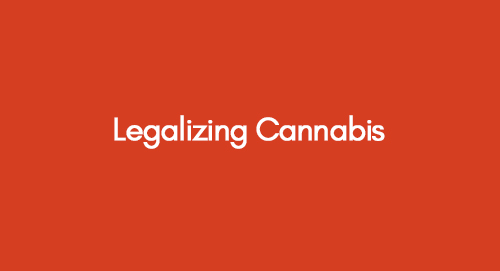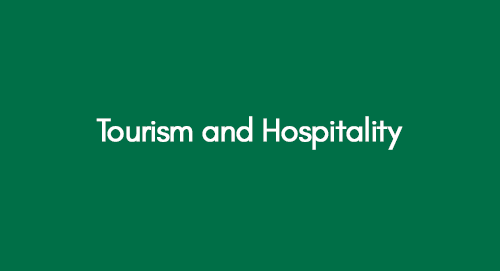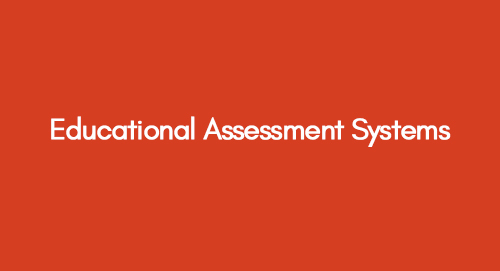
Legalizing Cannabis
July 12, 2022
Fashion
July 12, 2022In the grand theatre of wanderlust, tourism and hospitality become the duet of discovery, where the orchestration of experiences is a delicate dance between the artistry of exploration and the hospitality's symphony, composing a unique melody that echoes the essence of every journey.
Outline
- Background of The Cavendish Hotel in London
- The Aim of the Research
- Literature Review
- Hypothesis
- Bibliography
The hotel industry, according to Mintel (2018), is a huge market in London, but the profitability of each hotel in part depends on the customer services provided. Customer service according to Kamin (2006), is the key to the business, but the service provided and given to customers such as accommodation, food, and beverage, front office, housekeeping, spa, and wellness vary from hotel to hotel.
Figure out How Hotel Industry Makes Customer Service Favorable
The support offered to the clients throughout the stay, before and after buying the accommodation in the hotel, makes the customer service favorable or adverse and their experience pleasant or unsatisfied. Customer service in the hotel must be available both by e-mail, web, phone, social media, and face to face at any time of the day or night, and here, the management plays an important role (Wood, Roy C., 2018).
Berger (2013, p.3) argues, that in the last century, because of globalization, customers become more demanding because they have the opportunity to travel around the world and they have more alternatives from which to choose. The hospitality industry has to rely on the quality of service to sustain a competitive advantage, but this can be done just if it is planned, managed, and delivered at that level of quality that exceeds the customer expectation (Berger, 2013). This system of administrative classification has been found that no longer meet the new requirements, some countries beginning to reconsider and modify the classification criteria and standards, with an emphasis on the quality of services, employee, and their behavior.
Learn What Projects are Needed to Improve Consumer Experience in Hotel Companies
The hotel companies treat their customers not only as a source of their income but as a valuable resource. Firms have figured out how to make more significant levels of administration that are difficult to copy. Significantly, the management gave matches the customer's needs. To improve the consumer experience, it is recommended to focus on possible and critical projects, being required a few key initiatives as:
- act in case of reactions from the client's thinking processes from the outside to the inside
- acts unitarily, as a single organization, for reasons of consistency
- be open
- personalize products and experiences
- change the attitude and behavior of the company
According to Berger (2013, p.4), “A service can be broken down into three components: technical, functional, and image.” All the facilities such as rooms, restaurant, and lobby, are seen as technical component, the speed of an employee to fulfill the guest's inquiries and needs are classified as a functional aspect and the company image and reputation is built through customer perception, customer expectation, performance, price, and advertising. It is important to have good customer service in the hotel but before that, you have to understand the customers and their needs, and what is important for them and their families (Berger, 2013).To have a complete appreciation of the service, both forms of it (technical and personnel) must be known and measured. Knowing the essence and structure of these needs is a priority for defining quality. The service offer has its particularities, largely conferred by the immaterial character of many of them. Customers are and will be increasingly demanding. To be able to meet their expectations fluctuating, service providers will have to impose performance, in the strictest sense possible.
Getting quality does not simply mean creating benchmarks and guaranteeing consistency with them, yet quality execution must prompt gathering the requests and desires of clients and quality administration. In this specific circumstance, the precise examination of the nature of the hotel administration and the selection of the vital measures is need of the most elevated significance in the present stage. Therefore, guaranteeing the aggressiveness of the travel industry items and administrations must be founded on quality administration, which is an approach to guarantee intensity and verifiably the organization's believability available. Currently, it can be considered that the most important quality generating component is represented by the human potential, respectively by the structure, the level of preparation, the degree of specialization, and improvement of the employees, elements relatively easy to evaluate.
The Cavendish Hotel is ranked between 7-8 over 10 for rooms, services, facilities, food, and beverage, and its location. Learn More about Cavendish Hotel below.
Background of The Cavendish Hotel in London
Situated in the very heart of Mayfair and Piccadilly, at the intersection of Duke Street and Jermyn Street, The Cavendish London has been open in 1966. According to Telegraph (2019). Five years ago, The Ascott Limited company bought the hotel and, according to Mintel (2018), is the biggest owner/administrator of refurbished apartments in the Asia-Pacific district with remarkable dimensions in China and South East Asia, The Ascott Limited is a Singapore organization that has become one of the main global overhauled home proprietor administrators. It has more than 43,000 working adjusted home units in key urban communities of the Americas, Asia Pacific, Europe, the Middle East, and Africa, just as 31,000 units which are a work in progress, making a sum of more than 74,000 units in more than 500 properties.
The Aim of the Research
To provide this information we will use primary and secondary data such as questionnaires guest feedback and websites. Throughout this research paper, we will analyze the customer services problems at The Cavendish London Hotel, the impact of it, and the role of the management in finding solutions for the benefit of the company. For this study, I will use information written by the authors Wood, and Roy. C (2013 & 2018), Boella, M. (2017), Berger, F. (2013), Middleton (1998), Michael C. Sturman (2011), Kamin (2006) primary data collected using questionnaires, secondary data collected using Mintel (2018 & 2019), journals, as well as the website as Telegraph (2019), Tripadvisor (2019) and The Cavendish Hotel (2019).
The clients of The Cavendish London Hotel are mostly foreign businessmen, but tourists as well, accustomed to traveling and enjoying the comfort of the hotel. Thus, if you want to keep them loyal, it is essential first to know the values, to respect them, but also to permanently invent something new, and different, that will meet their needs and even exceed their potential. It is particularly important to pay special attention to the guests' favorites (if these preferences are known). In the practice of the hotel, there is what is called a "concept" which implies the registration in the hotel information system of the preferences of the guests, so that, when they return, we know exactly how to surprise them pleasantly. We do this by paying attention to those details that value and that personalize the services.
Our research goals are to understand the service offered at The Cavendish Hotel to the customers and how it can be improved.
Research Questions and Objectives
Estimation of fulfillment implies that we measure the contrasts between what clients expect and what they see to get. Consumer loyalty measures are centered around comprehension and overseeing client desires for what organizations are now doing, rather than setting up what clients do. So, as to have the option to adequately apply mass customization, examinations must be made a long way past making estimations that have repercussions. Addressing the following research questions, we will try to achieve the aims.
Q1: What is the impact of service provided at The Cavendish hotel on customer value perception and satisfaction?
Q2: What is the main cause of bad or good customer service?
Q3: What is the role of management in providing good customer service?
Literature Review
Review the literature review down below.
Customer Relationship
Customer relationship management, according to Buttle (2009, p.15), is today a mature discipline that places the customer in the center of the business. This "customer-centricity" promotes its fidelity, which increases the lifetime value of each relationship. Not just Buttle (2009) talks about this, but there are some other researchers as Michael C. Sturman, Jack B. Corgel & Rohit Verma (2011), that show that Customer Relation Management (CRM) is considered to be the driving force behind the introduction of many customer loyalty programs. It is frequently discussed developing the client relationship, guests' excellent experience, and about the principles of creating long-term relationships with them.
Thus, this study aims to demonstrate that if is there a belief that developing a customer relationship is the best way to make them loyal, then we can argue that loyal customers are more profitable than unfaithful customers, based on previous research and own experience as a customer. CRM is a global process of creating and keeping profitable relationships with customers, by ensuring a higher degree of value and customer satisfaction. In the hotel industry, it can be defined as a business philosophy to create and increase the value of the clients thus, to motivate clients to remain faithful to the company (Buttle, 2009).
Customer Services
Kamin (2006), highlights that employees who have a poor vision of the quality of services can attract a high rate of turnover, but Berger (2013), Wood, Roy C. (2013), and Boella (2017), argue that the quality of the services in the hotel industry can be increased by offering the employees adequate training for each position. In this way, the customers will be more satisfied, and they will come back on the basis that they will be served the same or even better. Being employees and a guest as well sometimes, we can say that both of the studies are reliable but the effects of professional behavior are unpredictable and hardly reversible over time, they are directly related to the number, structure, level of training, and motivational level of the staff as a whole. The quality of the services is appreciated through the prism of the essential characteristics perceived by the client. From the research performed on the quality of services, the following characteristics have been identified: trust, sensitivity, competence, politeness, communication, credibility, security, knowledge, and understanding of clients.
According to Lawrence A. Crosby (1990), one of the main problems that cause poor customer service in the hotel industry is hiring inappropriate staff that is not suitable for that role. Starting from this principle, Baker (2004), consider as well that, the team you have, is the one that interacts directly with the clients, and for this reason, you must hire the people who have the necessary skills for that role, a person with welcoming attitude, and who can easily handle certain situations with the clients.
Customer Value
The idea of organizations is the extent of how well the level of organization gave matches the wants of customers. Conveying quality assistance implies agreeing to client desires consistently (Lewis and Booms, 1983). In agreement with this reason, Gronroos (1982), made up a model where customers difference the administration that anticipates them and their impression of the administration got, assessing its quality. Another model shown by Gronroos (1983), alluded to the degree of value understanding for the two dimensions. specialized and useful administrations:
The specialized quality alludes to the after effect of the management;
The utilitarian quality, then again, alluded to how the administration was conveyed.
Berry, Parasuraman, and Zeithaml (Parasuraman. A, 1985) bolster this idea by contending that Crosby's (1990) meaning of value "as per the necessities" ought to be reformulated "as per the customer's details". Therefore, the nature of administration can be categorized as the distinction between the requirements and views of the customers. On the occasion that the desires are met, the nature of administration is seen as good; if they are not fulfilled, not exactly agreeable, and whenever surpassed, they are more than pleasant.
Thus, conducting this research we find out that, the excellent consumer experience considers the fact that a positive customer experience happens in the case of companies that show that they care about their customers. The companies that keep customers' expectations, truly provide value to customers, understanding that they are the most important component of any business, so, in this case, we have to demonstrate in our report the importance of a well-trained staff who have to fulfill the customer's expectations. That’s why, in this report, based on theories and research, we will elaborate, discuss and come up with arguments on how increased customer services and satisfaction can be. Considering the lack of training as a gap in the market, we can use the Total Quality Management (TQM) application that helps to identify ways to meet the quality requirements of the clients, because the quality of the product depends on the quality of the process (Baker, 2004).
Role of Management
According to Wood (2013), the management functions are those functions that managers perform to achieve the objectives of their organization, by using human and financial resources (Wood, Roy C., 2013). The essential objective of quality management is to achieve, under conditions of efficiency and effectiveness the most extreme level just those staff that completely fulfills the customer's prerequisites, conforms to the necessities of the organization, consent to the measures and details applied, and consider all parts of buyer assurance and nature and are offered to the customer at the concurred cost and term. The same author Wood (2018), says that a manager has authority and a certain status, he has responsibilities - not only within the organization but also outside it. These activities or behaviors can be described as roles that a manager plays. (Wood, 2018).
According to Mintel (2018), the hotel industry plays a considerate role in the UK market. In the last years, the hotel business environment has changed substantially, and we can say, the UK experience a big competition from overseas hotels due to the major number of visitors who travels all over the world to see the main attractions. In our days, customers will search for the best services and value offerings of the hotel for their money (Lee et. al,2000). In this case, the hotel business must improve its customer services by, developing training programs and investing in technology. The role of the management is to find out what type of training is suitable for their employee, even if at the beginning it can be considered as a cost. At the same time, the manager of the hotel should analyze the feedback of the customers regarding technology and update their IT programs and apps.
Customer Services Solutions and the Impact on the Hotel Industry
According to Middleton, Victor T. C, and Rebecca Hawkins (1998), selecting and hiring staff in the hospitality industry, a level of professional training and good general culture must be taken into account. The identification and evaluation of some personal qualities of behavior and attitude of the future employee such as professional charisma, a vocation for tourism, availability to provide services and to learn, sociability, empathy, elements that will be directly reflected in the quality of services and the level of customer satisfaction are essential. Being a big competition in the field, the companies cannot afford to ignore the quality of services.
Considering Mintel (2019), the hotel's priority should be recruitment and employee progression to meet the guest’s satisfaction. The lack of adequate training in the hotel industry as it is shown by Michael C. Sturman, Jack B. Corgel & Rohit Verma (2011), leads to poor services with clients and as long as the team does not have training based on strong information, mistakes will appear and the client will be dissatisfied. As it is shown by the previous researchers, another study conducted by C.K.Prahalad (2005), comes with the argument that the success of a hotel is determined by the measures and the actions of attracting and maintaining the clients, by the level of satisfaction of their needs and the determining element are the staff.
When we are talking about service quality it led us to customer expectation, so, customer services are all about customers' perceptions. The interpretivism theory (Gronroos, 1984), tells us that two persons can receive the same service but can have different opinions about it, based on previous experience. The quality of the tourist services offered by each provider separately is the result of combining two components: a quantitative one, with a predominantly material character, represented by the existing equipment, the food, the decoration, the working methods, and the second component being the qualitative one, the behavioral one. As regards the material component, it puts a mark on the quality of the tourist services through the requirements of comfort, and functionality that the equipment of the different service units meets. An especially important aspect that influences these requirements is the built-in technicality level (Gronroos, 1984).
As we can see in the chart below Gronroos (1984), shows us that, the technical quality and functional quality lead to the image of the company but the perceived service depends on the interpretation of the customers. The theory of interpretivism argues that the method used, related to the human and social science to understand the knowledge, cannot be the same for two persons because the human interprets their feelings, words, and behaviors.
Research gap
Mentioning the quality of services, several specialists recognized some potential gaps:
- Between consumer expectations and management perception;
- Between the quality features and the delivery of services;
- Between the transfer of the service and what is communicated about this service to the consumer;
- Between the consumer's expectations and his perception regarding the current quality of the service delivered.
From our point of view, we can consider as part of the gap that, it has not been yet found all the types of adequate training to cover all the clients' requirements. Considering that in the hotels, clients come from all over the world, each one has their own culture, their own previous experience, the level of education differs from one country to another, from one individual to another, and the hotel employees must adapt to all these requirements. This implies a level of knowledge about human cultures and behaviors.
Considering the authors as Baker & Moira (2004), Michael C. Sturman, Jack B. Corgel & Rohit Verma (2011), and Parasuraman. A Valarie A. Zeithaml and Leonard L. Berry (1985), Wood, Roy C. (2018), who have researched customer services and customer satisfaction, Boella (2017), and Berger (2013), have researched Human resource and organizational behavior in the hotel industry, Buttle (2009), on customer relationship and Kamin (2006), on customer training we can say that research has not fully identified the impact of poor customer service on customer satisfaction and that further research is needed into the causes of poor customer service.
Hypothesis
In our paperwork, we will use the approach to theory development based on the deduction, which means from general to specific, and the exact outcomes will consistently be founded on a specific hypothetical help (which they approve or discredit). The hypotheses are:
H1: Customer value feelings of the service have a positive or negative impact on the satisfaction with the services offered by the hotel
H2: Employee training and employee satisfaction it is linked to customer services and customer satisfaction
- Instructor Feedback
Review the instructor feed back down below.
- Theoretical Background 20%
The review covers several relevant kinds of literature and it does attempt to move towards a specific focus on the hospitality industry. There is a brief mention of at last two theories though these are not explored. How are they relevant to the chosen research areas, how could they be applied to this area and what are the strengths and limitations of the models in this context. Adding this element of application and critique would add to the quality of the review.
- The Relevance of the Research Question/Theoretical Background is 40%
There is some context to the research set in the review and its growing importance as the nature of hotel guests changes. There is also an attempt to link back to relevant literature to illustrate the research gap though this could be developed to more clearly identify what the gap is. The research objectives and questions are I think workable, but they need polishing to improve clarity, and question 1 should be rewritten to make it clear it is measuring service quality.
Bibliography
Baker, Moira Clark, and Susan, 2004. Business Success- Through Service Excellence. In: Elsevier, ed. Business Success- Through Service Excellence. Oxford: Elsevier Butterworth Heinemann, p. 191.
Berger, F., 2013. Organizational Behaviour for the Hospitality. Harlow: Pearson Education.
Boella, M., 2017. Human Resource Management In The Hotel And Catering Industry. Abingdon: Routledge.
Buttle, F., 2009. Customer Relationship Management. In: Elsevier, ed. Customer Relationship Management - Concepts and Technologies. Oxford: Butterworth-Heinemann, p. 485.
Creswell, J., W. (2007). Research design. Qualitative and mixed methods approach. London: Sage.
C.K.Prahalad, Gary. Hamel and, 2005. Harvard Business Review Home - Strategic Intent. [Online]
Available at: https://hbr.org/2005/07/strategic-intent
[Accessed 10 Novembre 2019].
Cavendish, T., 2019. The Cavendish. [Online]
Available at: https://www.thecavendish-london.co.uk/about-us
[Accessed 23 October 2019].
Grönroos, C. (1994), “From Marketing Mix to Relationship Marketing. Towards a Paradigm Shift in Marketing”, Management Decision, Vol. 32 No. 2, pp. 4‐32.
Hammersley, M. (2013). What is Qualitative Research? London and New York: Bloomsbury.
Kamin, M., 2006. Customer Service Training. In: Customer Service Training. Oxford: Elsevier, p. 203.
Lawrence A. Crosby, Kenneth R. Evans and Deborah Cowles, 1990. Relationship Quality in Services Selling: An Interpersonal Influence Perspective. Journal of Marketing, 54(3), pp. pp. 68-81.
Malbašić, I., Rey, C. and Potočan, V., 2015. Balanced organizational values: From theory to practice. Journal of Business Ethics, 130(2), pp.437-446.
Michael C. Sturman, Jack B. Corgel & Rohit Verma, 2011. The Cornell School of Hotel Administration on Hospitality - Cutting Edge Thinking and Practice. In: J. W. &. Sons, ed. The Cornell School of Hotel Administration on Hospitality - Cutting Edge Thinking and Practice. New Jersey: John Wiley & Sons, p. 487.
Middleton, Victor T. C, and Rebecca Hawkins, 1998. Sustainable Tourism - A Marketing Perspective. In: B. -. Heinemann, ed. Sustainable Tourism - A Marketing Perspective. Oxford: Butterworth - Heinemann, p. 263.
Mintel, 2018. Hotels-UK. [Online]
Available at: https://academic.mintel.com/display/928690/
[Accessed 01 November 2019].
Mintel, 2018. The Ascott Ltd (including Quest Apartment Hotels). [Online]
Available at: https://academic.mintel.com/display/937032/
[Accessed 4 November 2019].
Mintel, 2019. Hotels-UK-December-2019. [Online]
Available at: https://academic.mintel.com/display/995520/
[Accessed 10 December 2019].
Parasuraman. A Valarie A. Zeithaml and Leonard L. Berry, 1985. A Conceptual Model of Service Quality and Its Implications for Future Research. Journal of Marketing, 49(4), p. 41–50.
Saunders, Mark & Lewis, P. & Thornhill, A.. (2009). Understanding research philosophies and approaches. Research Methods for Business Students. 4. 106-135.
Telegraph, T., 2019. The Telegraph. [Online]
Available at: https://www.telegraph.co.uk/travel/destinations/europe/united-kingdom/england/london/central/west-end/mayfair/hotels/the-cavendish-hotel/
[Accessed 25th October 2019].
Tripadvisor, 2019. Tripadvisor. [Online]
Available at: https://www.tripadvisor.co.uk/Hotel_Review-g186338-d192116-Reviews-The_Cavendish_London-London_England.html
[Accessed 23 October 2019].
Wood, Roy C., 2013. Key Concepts in Hospitality Management. London: Sage Publications Ltd.
Wood, Roy C., 2018. Hotel Accommodation Management. Abingdon: Routledge.
Get 3+ Free Dissertation Topics within 24 hours?




























